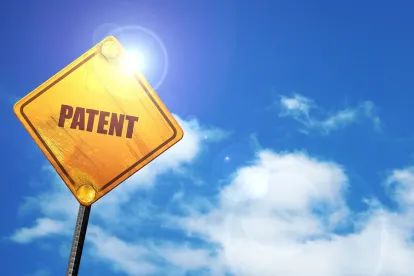In a recent decision, the U.S. Court of Appeals for the Federal Circuit held that the Eleventh Amendment barred suit against a nonconsenting state university to compel adding a named inventor to university-owned patents. Ali v. Carnegie Inst. of Wash., No. 2016-2320, 2017 U.S. App. LEXIS 6250 (Fed. Cir. Apr. 12, 2017). The case continues a recent string of decisions that have blocked legal proceedings against state university patentees on constitutional grounds.
The Eleventh Amendment dictates that the “judicial power of the United States shall not be construed to extend to any suit in law or equity, commenced or prosecuted against one of the United States.” Courts have long held that the states’ Eleventh Amendment sovereign immunity against suit in federal courts can extend to state universities as “arms of the state.” E.g., Brennan v. Univ. of Kan., 451 F.2d 1287, 1290-91 (10th Cir. 1971). Since the Bayh-Dole Act, universities—including state-controlled public universities—have become increasingly prominent participants in the patent system, and Eleventh Amendment protections have in turn gained increasing relevance in patent disputes.
In Ali v. Carnegie Institution, an individual scientist and former University of Massachusetts (UMass) employee sought under 35 U.S.C. § 256 to be added as a named inventor on several patents co-owned by the Carnegie Institution and UMass covering RNAi technologies. The district court held that UMass was entitled to, and had not waived, sovereign immunity from the plaintiff’s inventorship claim based on the Eleventh Amendment. The court therefore dismissed UMass from the case. The district court later determined that UMass was a necessary party as co-owner of the disputed patents and consequently dismissed the inventorship claims against Carnegie as well.
The Federal Circuit affirmed. There was no dispute that UMass is entitled to sovereign immunity, and, contrary to the plaintiff’s contentions, UMass did not waive that immunity by accepting federal research funds. In addition, the district court did not abuse its discretion in dismissing claims against the Carnegie Institution after deeming UMass a necessary party. The court noted that the plaintiff had declined an opportunity to name UMass officials as individual defendants even if UMass itself was not subject to suit. The result precluded litigation of the plaintiff’s inventorship claims on the merits.
Ali v. Carnegie Institution follows a line of decisions effectively immunizing patents owned by state universities from various challenges. For example: (i) the Patent Trial and Appeal Board recently dismissed petitions for inter partes review of patents owned by the University of Florida based on Eleventh Amendment immunity;[1] (ii) state universities suing for breach of patent license contracts in state courts have won dismissal of their licensees’ federal patent-law counterclaims and remand to state court;[2] and (iii) district courts have dismissed declaratory judgment actions for noninfringement and invalidity against university patentees on sovereign immunity grounds.[3] State universities have also successfully invoked the Eleventh Amendment to defeat patent infringement claims raised against the university.[4]Because issues of patent law are subject to exclusive federal jurisdiction, sovereign immunity in federal court can for practical purposes bar many patent-related challenges against state universities, and Ali v. Carnegie Institution provides another example in the context of inventorship disputes. Furthermore, Ali v. Carnegie Institution illustrates how even private institutions can benefit from sovereign immunity through patent co-ownership with a state university, where the state university may be at once immune from suit and yet necessary to just resolution of the dispute.
[1] Covidien LP v. Univ. of Fla. Research Found., Inc., IPR2016-01274, -01275, -01276, Paper No. 21 (PTAB Jan. 25, 2017).
[2] Univ. of Fla. Research Found., Inc. v. Medtronic PLC, No. 16-cv-183, 2016 U.S. Dist. LEXIS 92337 (M.D. Fla. July 15, 2016); Univ. of Ky. Research Found., Inc. v. Niadyne, Inc., No. 13-16-GFVT, 2013 U.S. Dist. LEXIS 158018 (E.D. Ky. Nov. 5, 2013).
[3] Cyanotech Corp. v. U.S. Nutraceuticals, LLC, No. 12-00352, 2013 U.S. Dist. LEXIS 16948 (D. Haw. Feb. 7, 2013); Tegic Commc’ns Corp. v. Bd. of Regents of the Univ. of Tex. Sys., No. C05-0723L, 2005 U.S. Dist. LEXIS 47561 (W.D. Wash. July 26, 2005).
[4] Pennington Seed, Inc. v. Produce Exch. No. 299, 457 F.3d 1334 (Fed. Cir. 2006); Sharafabadi v. Univ. of Idaho, No. C09-1043JLR, U.S. Dist. LEXIS 110904 (W.D. Wash. Nov. 27, 2009).





 />i
/>i
